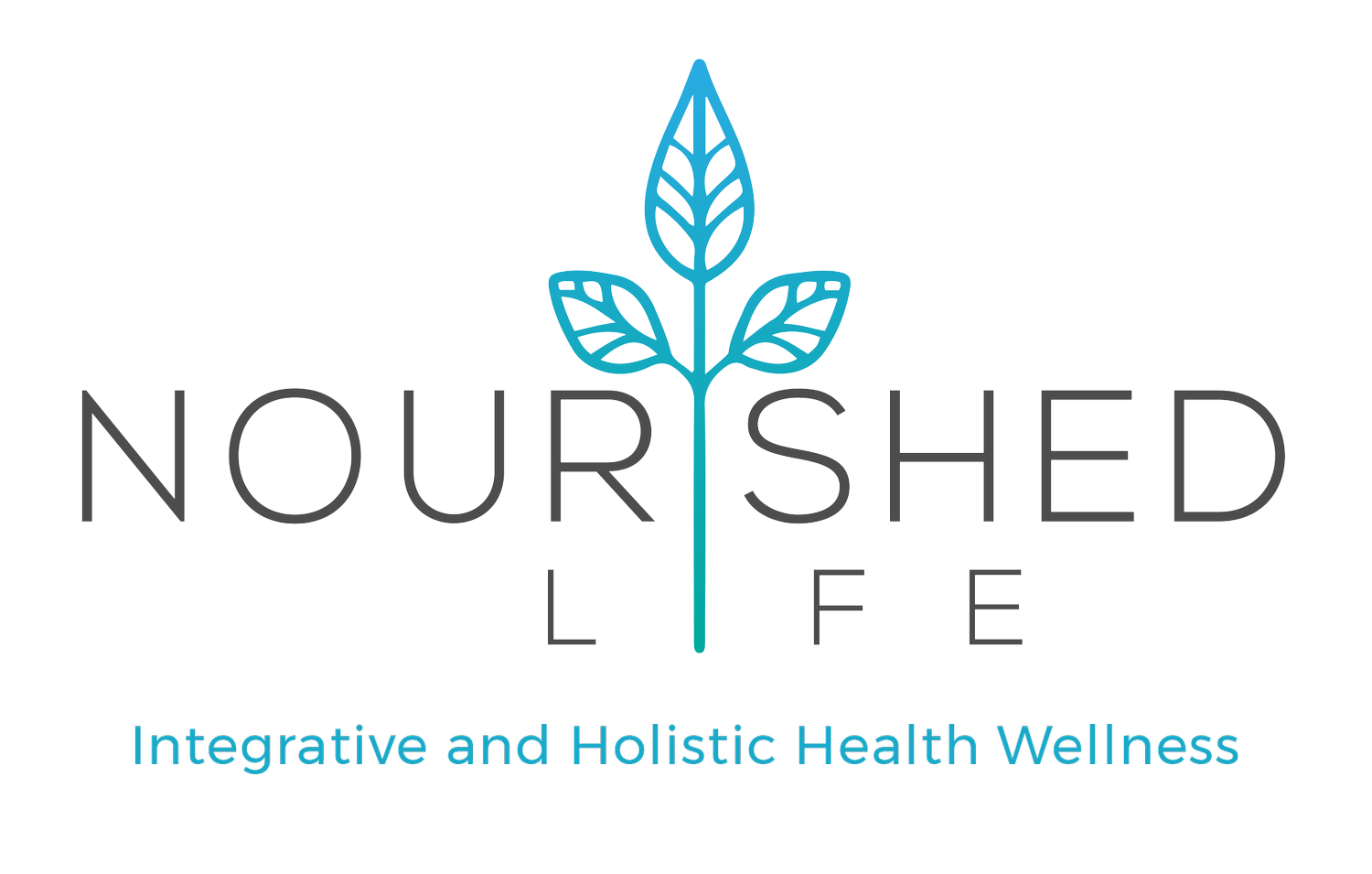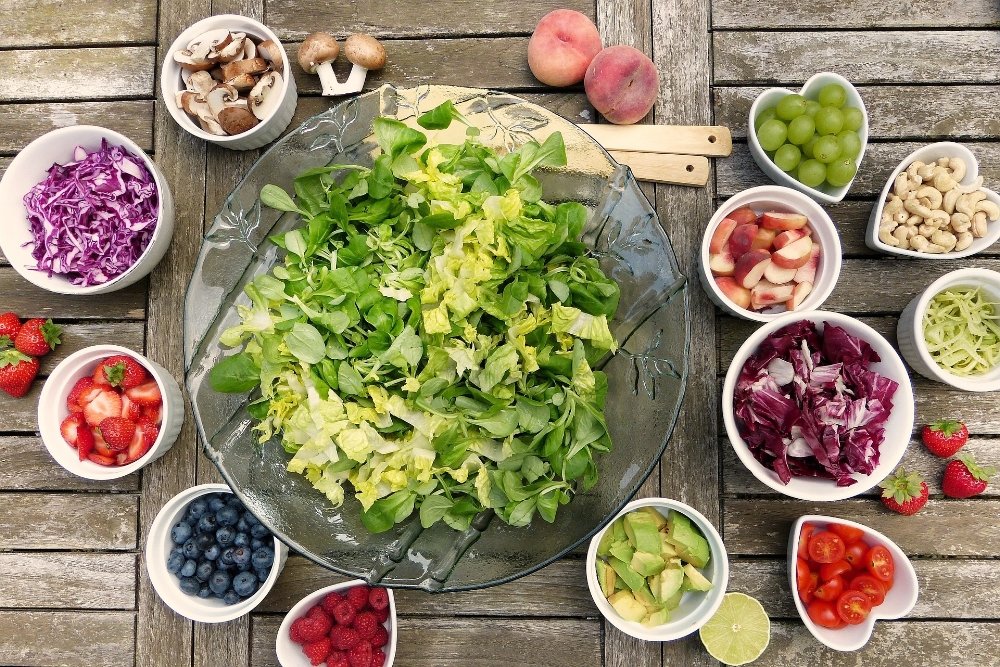How to Make Healthy Eating a Habit in 8 Simple Steps
Not everyone believes in the importance of nutrition and the connection between what you put in your mouth and how you feel. If they did, 1 out of 2 adults would not have a chronic health problem. On the other hand, many people do recognize the connection between nutrition and how you feel, but they do not know where to begin or how to break a non-nourishing eating cycle. Or maybe they do great all day and “fall off the wagon” at dinner time.
Replacing old habits with new ones can take time and self-education, but it is easier than you may think. When people start to realize nutrition and lifestyle choices are the leading cause of chronic diseases like diabetes, osteoporosis, cardiovascular disease, cancer, acid reflux, etc. and not genetics, they are much more willing to take control of their eating habits and practice self-care.
One more time: The food you put in your body and lifestyle choices you make are the leading cause of chronic disease – not genetics. Disease occurs from damaged genes, not necessarily inherited ones. You have a choice and the ability to be proactive about how you age, and realizing this is the first step toward making healthy eating a habit.
1. Start Small
You do not need to become non-dairy, gluten-free, vegan in a day – or ever. Pick one area of nutrition you want to work on, and start there and only there. The rest will happen automatically; as you succeed in improving one area of nutrition you will gain more healing, nutritious habits.
Taking small steps can really help you listen and be tuned into your body’s needs. Wherever you are on your health journey, you know your body and mind well enough to know what may not be working for you. This could be the processed cheese and milk you drink that leaves you with an upset or bloated stomach. This could be a high sugar intake through the drinks or carbohydrates you feel compelled to have to give you energy. You can swap out the foods you want to avoid by replacing them with healthier but similar options. For example, skim milk could be replaced by a delicious non-dairy nut milk, like cashew, almond, coconut or hemp seed milk, all of which are available from most grocery stores.
If you want to decrease your sugar intake, start educating yourself by looking at the grams of sugar in your daily juice, packaged foods or coffee creamer. Find fun ways to swap out and replace candy bars with protein bars or trail mix, juice with water with a slice of orange or lemon and white pasta or bread with a whole grain like quinoa or a gluten-free bread.
2. Know Your Why
It’s difficult to make any nutrition or lifestyle changes if you do not know why you are doing it. Once you are clear on your “why,” it is much easier to make more nourished choices for your body and life. Why do you want to start making better food and lifestyle choices? Maybe you are battling anxiety, fatigue, insomnia, headaches or digestive issues. Maybe your “why” is because you want to live the longest, healthiest life you can for you or your children; you want more energy, brighter skin or to reverse your diabetes. Whatever your reason is, be clear on it and write it down.
3. Educate Yourself
Go back to basics. By educating yourself about nutrition, you’ll be much better equipped to choose nourishing choices that are right for you. You will be more aware that the high-carb grilled cheese will spike your insulin and make you more lethargic, and you will know why the chocolate bar and ice cream are contributing towards your acid reflux and anxiety.
Educate yourself so you know how the foods we eat are very important to your health and how you feel. If you are tired, achy, bloated, irritable or dealing with a chronic disease, know you can feel so much better by improving your eating habits no matter what your age. It does not have to be hard, and, dare I say it, it can even be fun!
Traditionally, there was not much focus on and education about the foods we eat and the connection to how we feel and preventative disease. Luckily that is changing. Before you make a meal, ask yourself where it came from. Did it come from a box or package? Turn it over, look at the ingredients and compare it to others. Be curious about where your food comes from and how it affects your body.
4. Make a Decision and Practice the Decision
One of the most crucial steps to making healthy eating a habit is to actually make the decision to eat healthy and then practice it. Once the decision has been made, everything else becomes easier and action steps will fall into place. Replacing and avoiding sugar cravings become easier, planning ahead with healthy snacks becomes easier, choosing nourishing and healing food options that make you feel good becomes easier.
Issues of procrastination, slip-ups or willpower may come up. Be kind to yourself with this. If it happens, recognize it, acknowledge it, and move on and start up again at the next meal. Imagine how your life would be if, with every decision you made, you quit at the first sign of failing to follow through. Where would you be if you gave up on every decision and choice you made in your life?
Do not aim for perfection, but aim for 80%-90% perfection.
5. Plan Ahead
What influences habits? Marketers are really good at recognizing this. There is a reason junk food and candy are displayed at checkout aisles to catch the eye of shoppers with low blood sugar.
Plan ahead and come up with strategies to break the non-nourishing habits like blindly snacking in front of the TV or grabbing a candy bar in the checkout aisle due to low blood sugar.
Write out a nutrition plan and shopping list to avoid marketing ploys. Eat a balanced meal before food shopping and never go on an empty stomach. Keep containers or bags of trail mix and other healthy snacks in your car to avoid fast food runs. Find tasty food substitutes and learn to have fun with healing foods and try new things.
6. Focus on Your Successes Around Nutrition
We spend so much of our time focusing on what is wrong and not working in our lives, and although that has its place for awareness, it’s important to focus on what good nutrition or lifestyle choices you have made and that are working. This could be getting 8 hours of sleep, not eating in front of the TV for a week, trying a new whole foods recipe, ordering a tall latte at Starbucks instead of a grande frappuccino, avoiding extra condiments like ranch and mayo or eating an open-faced burger wrapped in lettuce instead of a white bun. These moments of success should be recognized and applauded, as all of these little steps are what adds up to the big ones and making a positive difference in your life.
Ultimately, the more often smaller goals are recognized and achieved, the more they will become habits and grow into bigger successes. Healthy eating with then become a habit and lifestyle, which is the ultimate goal.
7. It's More Than The Food You Eat
Something that is often overlooked is the way we nourish ourselves outside of the food we put in our body. It’s difficult to make healthy eating choices when you are not getting adequate sleep or when you are stressed by work, in a toxic relationship, putting others’ needs first or are in an unfulfilling job.
Lifestyle factors can impact your ability to make the best choices for you and your health, and it’s important to look at these areas as well. Fortunately, the beautiful thing about practicing self-care and taking charge of your health is that it often results in a positive ripple effect in all other areas of your life.
8. Hire a Health Coach
Whether you want to lose weight, prevent disease or save money on medical bills, there comes a time when we all need some outside guidance and support. Many of us have good intentions and goals, but struggle to truly commit. This is where the guidance of a health coach works wonders and offers the support and accountability many need to truly succeed.
If you want to make changes but have a hard time sticking to it, if you are stressed out and that is leading to a non-nourished lifestyle or if you need guidance from the start and need kitchen and recipe overhaul, it might be a good time to invest in yourself and hire a health coach.

